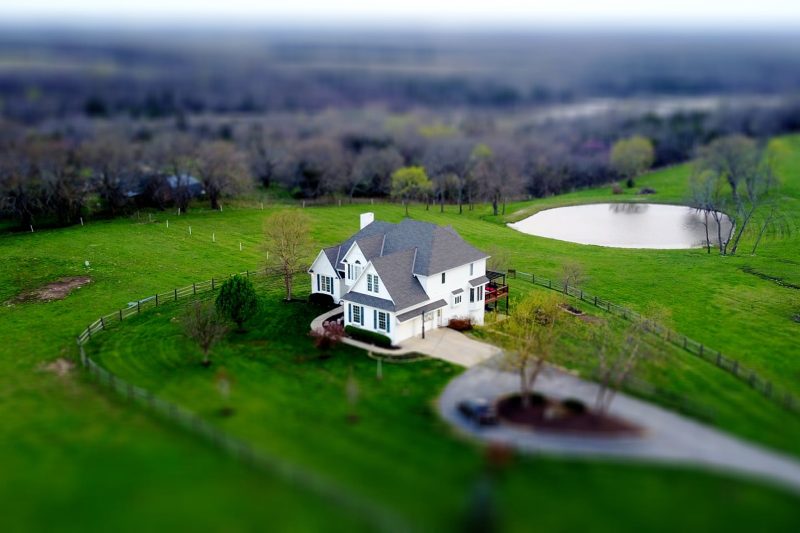Buy in Highland Park, IL with No Money Down!
“Unlock the Power of USDA Mortgages with Smart Mortgage!”
Highland Park, IL USDA Home Loan Guide
What is a Highland Park, IL USDA Mortgage?
Welcome to the Smart Mortgage guide on USDA Mortgages. Navigating the home financing world can be a daunting task, but understanding the various mortgage options available can significantly streamline the process. One such option that you might not be familiar with is the Highland Park, IL USDA mortgage. Let’s dive in.
1. Overview
A USDA mortgage, formally known as the USDA Rural Development Guaranteed Housing Loan, is a mortgage loan offered to rural property owners by the United States Department of Agriculture (USDA). Designed primarily to promote Illinois homeownership in rural and some suburban areas, the Highland Park USDA loan comes with a range of benefits that make it a viable option for eligible homebuyers.
2. Key Features
- No Down Payment: One of the standout features of a USDA loan in Highland Park, IL is the possibility of financing up to 100% of the home’s price. This means eligible borrowers can buy a Illinois home with no down payment.
- Competitive Interest Rates: Typically, USDA loans come with interest rates that are either at or below the market rate.
- Flexible Credit Guidelines: USDA loans often have more lenient credit requirements, which can be beneficial for those with a less than perfect credit history.
Highland Park FL USDA Loan Questions Call (888)416-4805
Get cash from your home.
Apply to see how a cash out refinance can help you.
Homebuyer Seminars
Discover the keys to homeownership at our local home buying seminar – your first step towards securing your dream home!
See our home loans.
Explore our diverse range of home loan programs tailored to fit your unique needs!
3. Eligibility Criteria
To be eligible for a Highland Park, IL USDA mortgage, borrowers must meet certain requirements:
- Location: The Highland Park, IL property must be located in an eligible rural or certain suburban area as defined by the USDA.
- Income Limits: There are specific income requirements, both minimum and maximum, based on the median income of the area.
- Creditworthiness: While the USDA is generally more lenient with credit scores, a certain credit standard must still be met.
- Primary Residence: The borrower must occupy the home as their primary residence.
4. Benefits of a USDA Mortgage
- Affordability: With no down payment and the potential for lower mortgage insurance premiums, a Highland Park, IL USDA loan can be more affordable in the long run.
- Inclusive: It’s a great option for Highland Park, IL first-time homebuyers or those without a substantial savings for a down payment.
- Supporting Rural Development: By opting for a USDA mortgage, you’re indirectly supporting the development and sustainability of rural communities.
5. How Smart Mortgage Can Help
Navigating the intricacies of USDA mortgages can be challenging. That’s where Smart Mortgage steps in. Our team of seasoned USDA mortgage professionals is here to guide you through every step, ensuring you make informed decisions tailored to your needs. Whether you have questions about your eligibility or the application process, we’re here to help.
Take the Next Step Interested in exploring if a Highland Park, IL USDA mortgage is right for you? Get in touch with our Smart Mortgage team today at (888)416-4805. We’re committed to helping you find the best mortgage solution for your unique situation.
Do you need a Pre-Approval?
We are here to help! Get a same day Highland Park, Illinois USDA pre-approval to shop for your dream home!
Mortgage Resource Center

USDA Home Loan VS FHA Home Loan
USDA Home Loans vs. FHA Home Loans: Which is Right for You? Homeownership is a dream for many people. To make it achievable for a wider range of Read moreMore information About Highland Park, Illinois
Highland Park is a suburban city located in the southeastern part of Lake County, Illinois, United States, about 25 miles (40 km) north of downtown Chicago. Per the 2020 census, the population was 30,176. Highland Park is one of several municipalities located on the North Shore of the Chicago metropolitan area.
A traveler in the area in 1833 described visiting a village of bark-covered structures where he ate roasted corn with a chief named Nic-sa-mah at a site likely located south of present-day Clavey Road and east of the Edens Expressway.
In 1847, two German immigrants, John Hettinger and John Peterman founded a town along Lake Michigan, which they called St. John’s. Soon, the town was abandoned, due to questions regarding ownership of the land. Three years later, another German Immigrant, Jacob Clinton Bloom, founded Port Clinton, which happened to be just south of St. John’s. Port Clinton was described by Elijah Middlebrook Haines as “one of the most promising villages in the city”. In 1854, a lighthouse was built in Port Clinton, thanks to funding by the US Congress and sponsorships from Illinois representatives. Despite having a functioning lighthouse with a keeper, a pier, sawmill, and a plank road, Port Clinton did not have a train station in 1855. In 1860, Port Clinton stopped growing as a town, and the lighthouse was shut down.
In 1867, ten men purchased Highland Park for $39,198.70. They were the original stockholders of the Highland Park Building Company. Following construction of the Chicago and Milwaukee Railroad, a depot was established at Highland Park and a plat, extending south to Central Avenue, was laid out in 1856. At that point, Highland Park was settled on mostly scattered farms and undeveloped forested land. Highland Park was established as a city on March 11, 1869, with a population of 500, and evolved from the two settlements of St. John and Port Clinton; St. John’s Avenue and Port Clinton Square are named after the settlements. Highland Park was named from its parklike setting at a lofty elevation relative to the lake, and was given its name from Walter S. Gurnee. The town annexed the village of Ravinia in 1899.
From its establishment in 1869 until November 1, 1900, Highland Park was a “dry” community, in which the sale of alcoholic drinks was prohibited.
We Service the Following Locations in Florida



